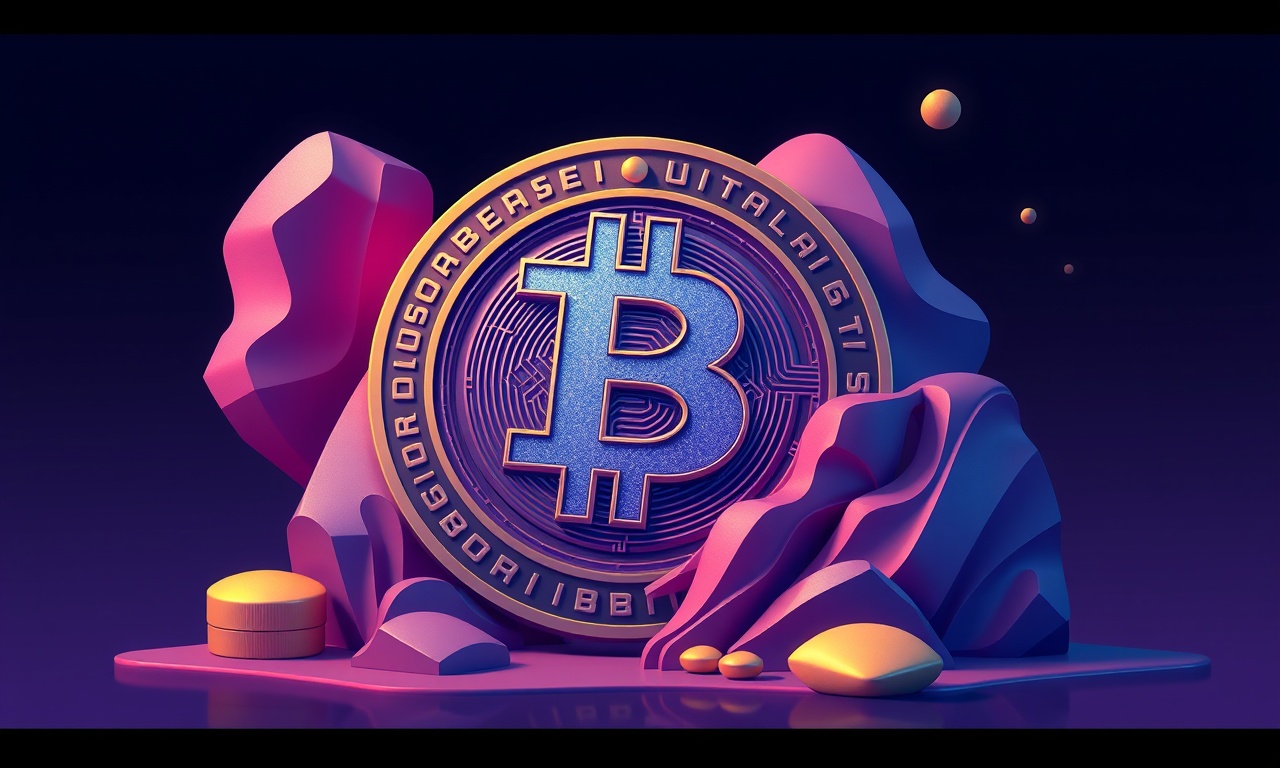The Governance Revolution How Decentralized Models Shape Finance

The Governance Revolution: How Decentralized Models Shape Finance
Introduction
The idea that governance in financial systems can be reimagined beyond traditional hierarchies has taken root in the digital age. Decentralized governance frameworks, powered by blockchain technology, allow stakeholders to shape the direction of projects, protocols, and ecosystems collectively. In the world of decentralized finance (DeFi), these models have become central to how value is created, distributed, and preserved. This article explores the foundational primitives of decentralized governance, the mechanics that enable delegation, and the impact of these systems on the broader financial landscape.
Decentralized Governance in a Nutshell
Governance in finance is the set of rules, processes, and structures that determine how decisions are made and how power is exercised. Traditional institutions rely on appointed officials, boards, or shareholders to set policy and oversee operations. Decentralized governance, as explored in Navigating Decentralized Governance A Practical Guide, by contrast, distributes decision‑making power across a broad base of participants who collectively hold tokens or other digital assets that represent voting rights.
Key features of decentralized governance include:
- Transparency: All proposals, votes, and outcomes are recorded on an immutable ledger.
- Inclusivity: Anyone who holds the required tokens can participate, regardless of geography or background.
- Automation: Smart contracts enforce voting rules and execute approved actions automatically, reducing the potential for manipulation.
- Dynamic adaptation: Protocol parameters can be adjusted over time without the need for hard‑forks or legal intervention.
These attributes reshape the way financial protocols evolve, shifting responsibility from a few individuals to a community of stakeholders.
Core DeFi Primitives that Enable Governance
Tokenized Representation of Voting Power
At the heart of any decentralized governance system lies a token that represents voting power, a concept detailed in Building Blocks of DeFi Core Primitives Explained. These tokens are typically issued by the protocol and are distributed through various mechanisms: airdrops, liquidity mining, staking rewards, or direct purchases. Token holders can cast votes directly or delegate their voting rights to others.
Proposal Lifecycle
Decentralized protocols usually follow a structured lifecycle for proposals:
- Submission: A community member submits a proposal that outlines a desired change, such as adjusting a fee structure or adding a new asset.
- Discussion: The community debates the merits of the proposal, often using on‑chain or off‑chain forums.
- Voting Window: A predetermined period during which token holders cast their votes.
- Execution: If the proposal meets quorum and majority thresholds, smart contracts trigger the corresponding changes automatically.
Quorum and Thresholds
Quorum refers to the minimum amount of voting power that must participate for a vote to be valid. Thresholds set the level of support needed for a proposal to pass. These parameters balance the need for community consensus with the risk of low participation stalling progress.
Delegation Mechanisms
Delegated governance, a topic covered in Trust Building In DeFi Through Delegated Voting Structures, supports the idea that participants may not have the time or expertise to evaluate every proposal. Delegates, often called governors or community managers, can cast votes on behalf of their constituents. A common approach is a one‑to‑one delegation model, where each delegate receives a portion of the delegated power.
Delegated Governance Systems in Detail
Delegated Proof of Stake (DPoS) Analogy
Some protocols borrow concepts from delegated proof of stake, where token holders elect a limited number of validators to produce blocks. In governance, the elected validators become “governors” who propose and vote on protocol changes. This model reduces the overhead of running a full node and concentrates expertise.
Quadratic Voting
Quadratic voting, discussed in Delegated Governance In Decentralized Finance Mechanics And Impact, is a more recent innovation that addresses the imbalance between large and small token holders. Instead of voting power scaling linearly with token ownership, the cost of additional votes rises quadratically. This design encourages participants to express the intensity of their preferences rather than merely the amount of tokens they hold.
Reputation Systems
To prevent abuse of delegation, some protocols introduce reputation metrics. Delegates who consistently vote in alignment with community interests build trust, while those who act against consensus may lose reputation points. Reputation can be used to weight votes or restrict delegation.
Liquid Governance Tokens
Liquidity pools and impermanent loss protection can be tied to governance tokens. This creates an incentive for users to lock tokens in exchange for enhanced voting power or governance privileges. Liquid governance tokens enable dynamic adjustment of voting power based on user engagement.
Case Studies: Real‑World Applications
MakerDAO
MakerDAO’s governance is anchored in the MKR token. Holders can submit and vote on proposals affecting the DAI stablecoin system, such as collateral parameters and stability fees. Delegation is optional, and the community has successfully navigated thousands of proposals since its inception.
Compound
Compound’s governance token, COMP, allows users to propose changes to protocol parameters, including interest rates and governance fee structures. Compound also implements a “voting escrow” system where stakers lock COMP to receive voting power proportional to lock duration. This encourages long‑term participation.
Uniswap
Uniswap’s UNI token grants holders voting rights over protocol upgrades, fee structures, and treasury allocation. The platform’s governance has been notably inclusive, allowing anyone to submit proposals, and has adopted a transparent voting process that rewards active participation.
Benefits of Decentralized Governance in Finance
Reduced Centralization
Decentralized governance dilutes power from a few insiders to a broad base, mitigating the risk of single points of failure or manipulation.
Rapid Innovation
By enabling swift changes to protocol parameters, communities can adapt to new market conditions or security threats faster than traditional institutions.
Alignment of Incentives
Token holders have a direct financial stake in the health of the protocol. Their participation incentivizes them to act in the best interest of the ecosystem, underscoring the alignment of incentives that underpins DeFi.
Increased Trust
Publicly recorded proposals and votes foster transparency, which is essential for building user confidence in new financial systems.
Challenges and Risks
Low Participation
Even with open access, many token holders remain passive. Low voter turnout can undermine the legitimacy of decisions and create a governance vacuum.
Governance Attacks
Attackers may acquire large amounts of tokens to influence proposals or collude with insiders. Layered security mechanisms, such as multi‑sig wallets and time‑locked proposals, are often employed to mitigate these threats.
Complexity for Average Users
The mechanics of proposals, voting thresholds, and delegation can be daunting for non‑technical participants. User interfaces and educational resources are critical to broad adoption.
Regulatory Uncertainty
Decentralized governance structures blur traditional legal definitions of corporate governance and may invite scrutiny from regulators, especially when large token holders influence policy.
The Path Forward: Hybrid Governance Models
While pure decentralization offers many advantages, hybrid models, explored in Unlocking DeFi Potential with Robust Governance Frameworks, combine the strengths of centralized oversight with community participation. For example, a core team may retain a small reserve of governance tokens to act as a fail‑safe in extreme cases. Others adopt “multi‑layer” governance where high‑impact proposals go through a secondary approval process by a council of elected representatives.
Conclusion
Decentralized governance has become a cornerstone of modern financial innovation. By leveraging tokenized voting, smart contract automation, and delegation mechanisms, DeFi protocols create a self‑sustaining ecosystem where users can collectively steer the direction of the protocol. While challenges remain—particularly around participation and security—ongoing research and experimentation continue to refine these models. The governance revolution is reshaping finance, making it more inclusive, adaptable, and resilient. As protocols mature, we can expect further convergence between community-driven decision making and regulatory frameworks, forging a new paradigm for how value is governed in the digital age.
.png)
Sofia Renz
Sofia is a blockchain strategist and educator passionate about Web3 transparency. She explores risk frameworks, incentive design, and sustainable yield systems within DeFi. Her writing simplifies deep crypto concepts for readers at every level.
Random Posts

A Deep Dive Into DeFi Protocol Terminology And Architecture
DeFi turns banks into code-based referees, letting smart contracts trade without intermediaries. Layer after layer of protocols creates a resilient, storm ready financial web.
8 months ago

Mastering DeFi Option Pricing with Monte Carlo Simulations
Unlock accurate DeFi option pricing with Monte Carlo simulations, learn how to model volatile tokens, liquidity rewards, and blockchain quirks.
6 months ago

From Mechanisms to Models in DeFi Governance and Prediction Markets
Explore how DeFi moves from simple voting to advanced models that shape governance and prediction markets, revealing the rules that drive collective decisions and future forecasts.
5 months ago

DeFi Foundations Yield Engineering and Fee Distribution Models
Discover how yield engineering blends economics, smart-contract design, and market data to reward DeFi participants with fair, manipulation-resistant incentives. Learn the fundamentals of pools, staking, lending, and fee models.
1 month ago

Beyond Borders Uncovering MEV Risks in Multi Chain Smart Contracts
Discover how cross-chain MEV turns multi-chain smart contracts into a playground for arbitrage, exposing new attack surfaces. Learn real incidents and practical mitigation tips.
5 months ago
Latest Posts

Foundations Of DeFi Core Primitives And Governance Models
Smart contracts are DeFi’s nervous system: deterministic, immutable, transparent. Governance models let protocols evolve autonomously without central authority.
2 days ago

Deep Dive Into L2 Scaling For DeFi And The Cost Of ZK Rollup Proof Generation
Learn how Layer-2, especially ZK rollups, boosts DeFi with faster, cheaper transactions and uncovering the real cost of generating zk proofs.
2 days ago

Modeling Interest Rates in Decentralized Finance
Discover how DeFi protocols set dynamic interest rates using supply-demand curves, optimize yields, and shield against liquidations, essential insights for developers and liquidity providers.
3 days ago
